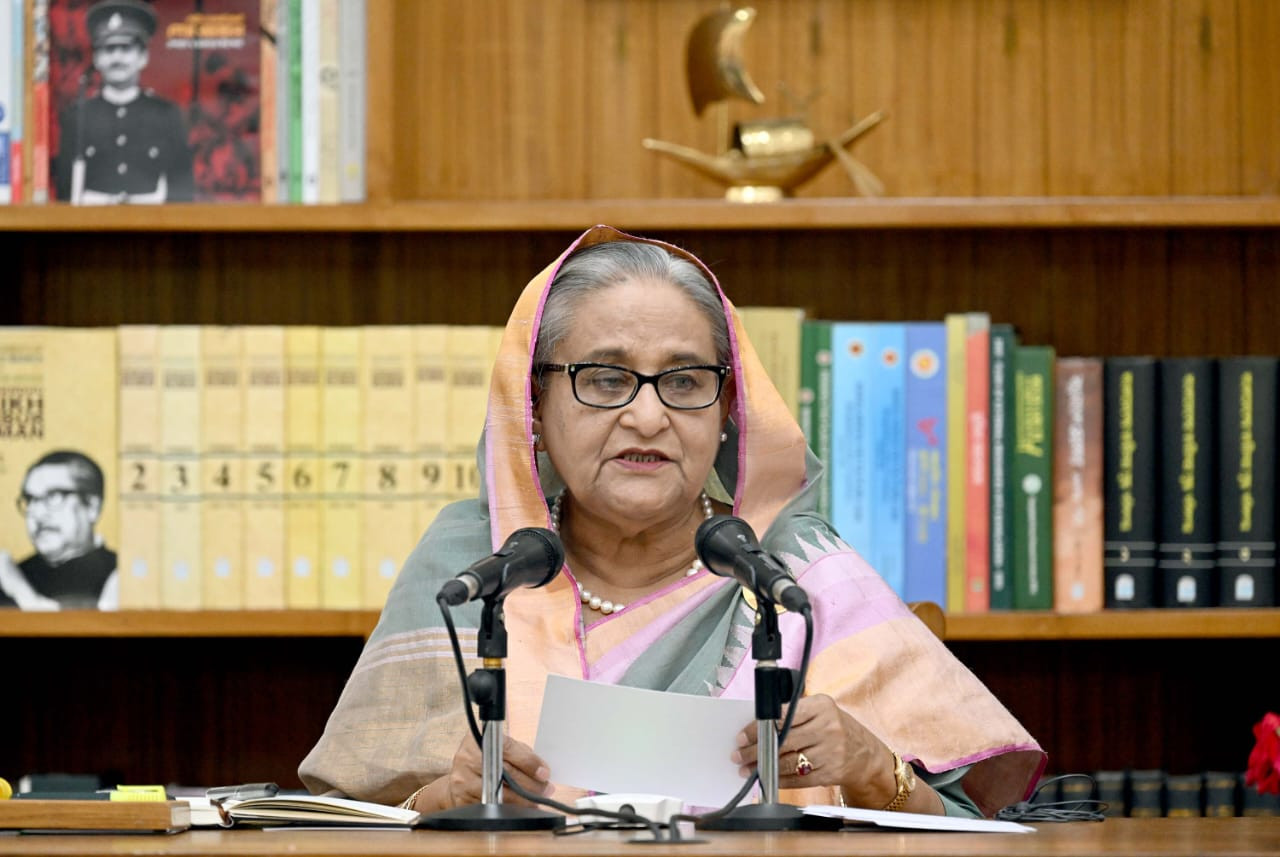Sheikh Hasina: From a pro-democratic leader to a dictator
Daily Sun Report, Dhaka
Published: 06 Aug 2024

Sheikh Hasina has resigned from the post of Prime Minister and fled the country following weeks of protests by students which culminated in a one-point demand for the resignation of her government.
Talking to BBC, her son Sajeeb Wajed Joy dismissed the possibility of his 76-year-old mother’s return to politics. Thus, it can be said that with Sheikh Hasina’s fall, an era of the country’s politics has come to an end.
Born on 28 September 1947 in Tungipara of Gopalganj, Hasina had to live six years in exile and she could skip the brutal assassination of her father and most of the family members. When she returned to Bangladesh, the Awami League was facing a serious internal feud and the country was undergoing military rule.
Hasina had to walk a long way leading her disorganised party amid nine years of autocratic rule of HM Ershad. She finally succeeded in taking AL back to power after 21 years. In her 43-year-long journey in politics, she assumed office as Prime Minister in 1996, 2008, 2014, 2018 and 2024.
Hasina is credited with significant economic success and infrastructural development but massive irregularities in the last three national elections under her leadership had compressed the democratic space for political parties in the country.
She is also accused of serious human rights violations, including a series of incidents of placing gags on the people and media’s
right to freedom of expression, harassment of political opponents through police cases, politically-motivated arrests, enforced disappearances and extrajudicial killings.
Yet Sheikh Hasina governed the country with an “iron fist” and suppressed her political opponents but all her attempts have stumbled in the last three weeks as she and her government miserably failed to handle the students’ movement demanding reform of the quota system in public jobs.
Almost 400 people had to die, but she remained stuck to her ego and did not initially agree to sit with the protesting student leaders. Moreover, her repeated missteps and arrogant statements made the students and ordinary people furious.
Being the chief of a 75-year-old political party, she completely failed to assess the political situation and understand the anger of mass people who felt deprived of their voting rights and helpless to cope with rising expenditure of daily lives.
A mass movement was just a matter of time to topple her government. Finally, the Anti-Discrimination Student Movement has caused the collapse of her house of cards. But the way she chose to flee only to save herself instead of staying in the country to face the consequences has pushed her party and party men into a dire situation.
Awami League’s supreme leader Bangabandhu Sheikh Mujibur Rahman was killed along with most of his family members. Yet the party had to wait long years to gain ground in the country’s politics. But Sheikh Hasina’s departure from the country has pushed the party back to the wall. How will it try to survive now?

